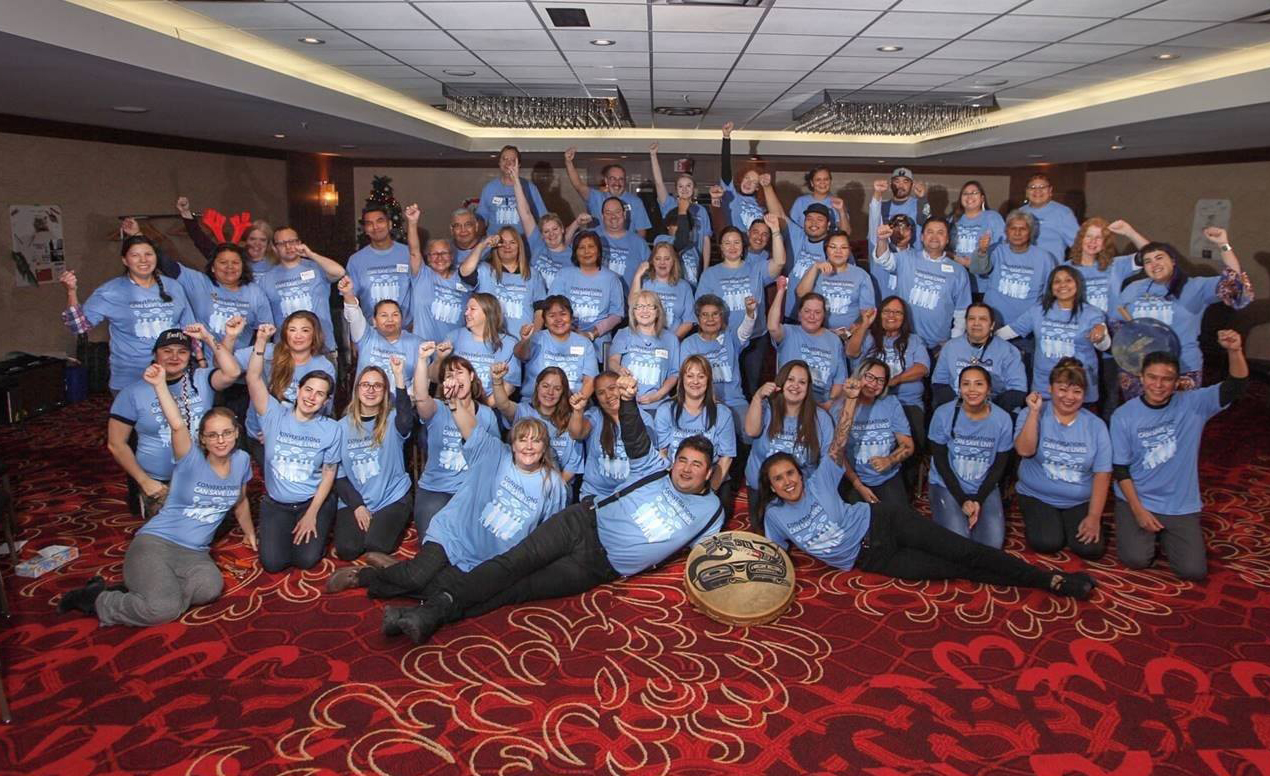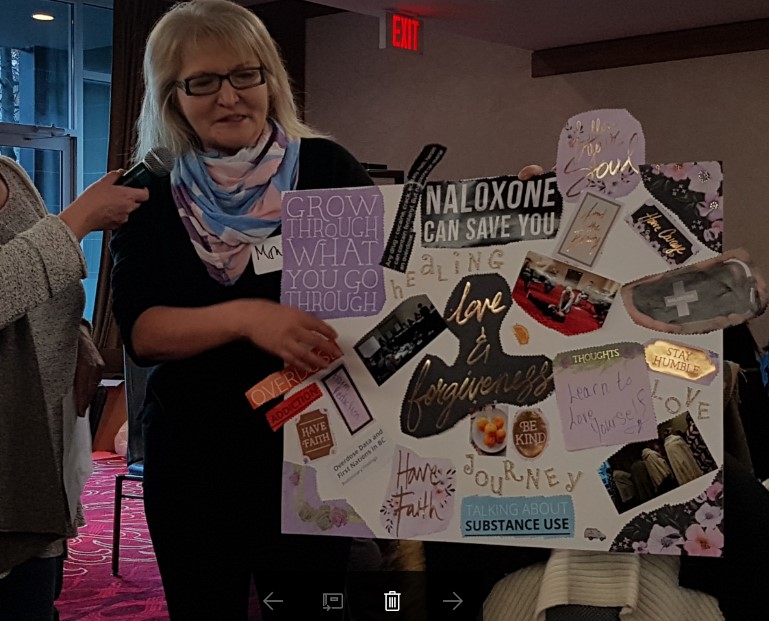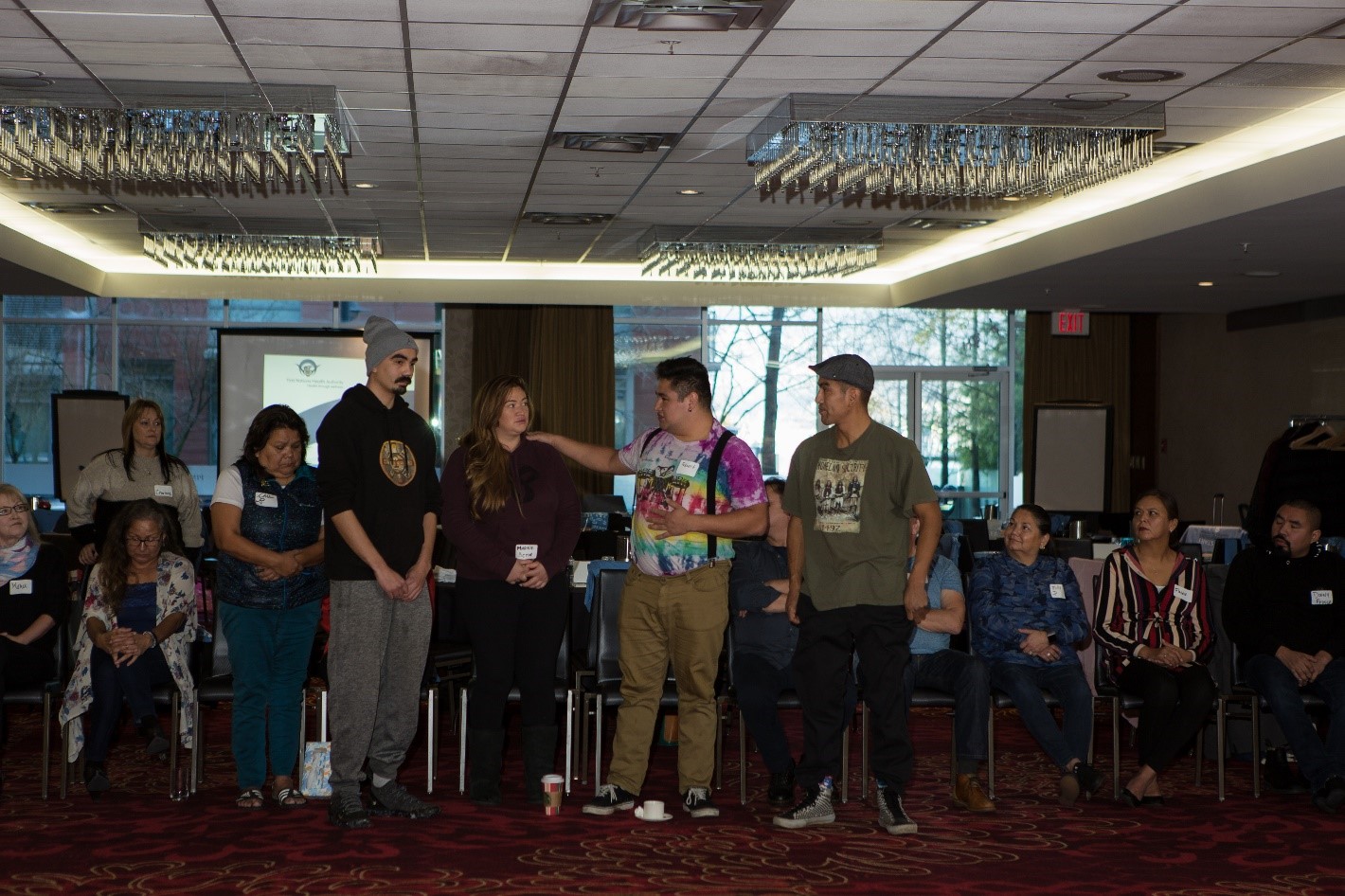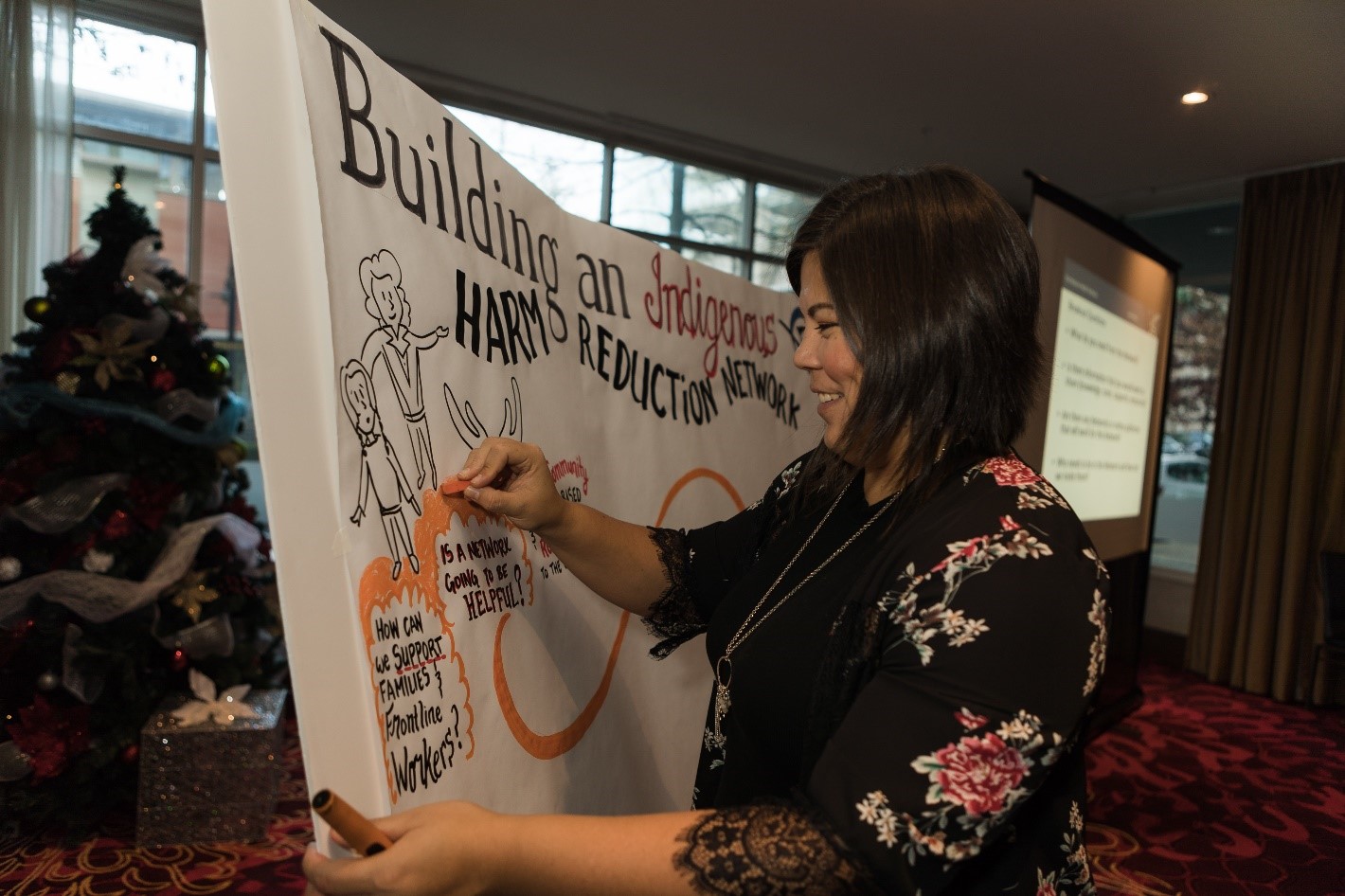
Group photo of Gathering Attendees
Harm Reduction Champions from communities across BC came together for the Not-Just-Naloxone Gathering in Vancouver on Dec 5 and 6, 2018. The champions shared their experiences of bringing harm reduction knowledge and education back home to their communities after participating in the NJN Train-the-trainer session earlier in 2018. They also discussed how to best continue moving this challenging yet crucial work forward in community.
Community health workers and champions came from all over the province to support each other, hear from one another, and renew their energies for the work of supporting communities through the overdose crisis. It was also the opportunity for the Research, Knowledge and Evaluation (RKE) Team to share and gather information for the creation of an 'Indigenous Harm Reduction Network', to provide a platform for collaboration and sharing of wisdom.
The first day opened with a welcoming ceremony led by Syexwaliya (Ann Whonnock), Squamish Nation, one of two First Nations Health Authority Elders followed by a circle of over 75 participants sharing experiences and success stories with each other in order to help people connect and ground themselves for the work ahead.
The participants had all taken part in a Not-Just-Naloxone "train-the-trainer" session held in their regions in during the last two years. The "train-the trainer" sessions are community-based harm reduction workshops led by FNHA's Indigenous Wellness team that supports community champions in bringing harm reduction teachings and practices back to their home communities. The workshops focus on topics such as decolonizing addiction, Indigenous harm reduction, recognizing and responding to an overdose – all through the lens of cultural safety and trauma-informed care. The community champions had also gone on to provide subsequent training sessions within their own communities, and had lots to share about their experiences facilitating on substance use, addiction, and harm reduction.

Mona Shaw presenting her group's collage
"What I learned through my Naloxone training is to teach through love," says Mona Shaw, pictured above with the collage she made with a group of champions representing their work. She is the Wuikinuxv First Nation's Community Health Representative.
FNHA has responded to the wave of opioid accidental poisonings by supporting communities to implement harm reduction strategies with traditional wellness-based approaches that are more holistic and culturally appropriate than Western approaches. It is also proving more effective.
For two years the Indigenous Wellness Team has crisscrossed British Columbia sharing information with and learning from communities, as well as training local champions. The Gathering was a time to reflect on what this work has meant, and to bring together people who spend a lot of time working alone, often in remote areas.
"I was surprised at how emotional it was for us to have all of the community champions in the same room: we shared laughs, tears, stories of our hardships as well as successes, and it was very moving to hear how people and communities have taken the curriculum and made it their own to move the work of harm reduction forward in their communities," says Andrea Medley, an Indigenous Wellness Educator at FNHA.
It was also a special time for FNHA staff, who witnessed the results of their hard work,
"It is a proud moment to work with those willing to be on the front lines. To be a part of the team that has to deal with tragedy yet working towards hope," says Jennifer Coward, project coordinator for Community Health and Wellness at FNHA.
A major topic of discussion was stigma, specifically stigma related to drug use. "Stigma kills! Harm reduction saved my life and the lives of my friends," says Marnie Scow from Culture Saves Lives, an organization that brings culture and ceremony into Vancouver's Downtown East Side Community. "You can't force someone to walk through that trauma until they are ready."

The team from Culture Saves Lives, a Downtown East Side-based organization that bring ceremony and culture the the DTES community, introducing themselves
A major reflection that emerged from the Gathering is the need to acknowledge the roots of addiction, as a means to understanding the roots of the overdose crisis for Indigenous communities; this includes recognizing the long-term and ongoing impacts of colonialism, residential schools and racism. From this stems the growing understanding that a response based on culture, connection and relationship-building will be the most effective, including the need to welcome people who use substances back into communities.
This is why the FNHA is supporting communities to build the capacity to respond to the overdose crisis with an Indigenous and harm reduction lens.
The Indigenous Wellness Team is now looking forward to more "Not Just Naloxone" trainings across the province in 2019. For more information please contact stbbi@fnha.ca or check out FNHA's online harm reduction resources here FNHA Harm Reduction.
And the team says watch this space for more information on the Indigenous Harm Reduction Network that is being developed across the province.

Michelle Buccholz working on graphic facilitation at the Not Just Naloxone Gathering

